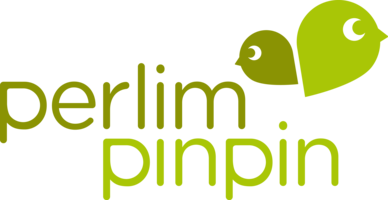

Perlimpinpin inc

January 2024
Textiles
Wholesale/Retail
Canada,
United States
With a legacy of over 35 years, Perlimpinpin is dedicated to enriching the journey of parenthood, fostering unforgettable moments with children. The arrival of a newborn, while bringing immense joy, also introduces moments of uncertainty for parents. At Perlimpinpin, we champion the significance of self-trust in parenting. We firmly believe that every parent possesses the innate ability to understand and meet their child's needs, and perfection is not the goal. Our team is committed to crafting unique and secure products, providing peace of mind to parents as they navigate the beautiful chaos of raising children. It is with great excitement that Perlimpinpin has recently received a B Corp certification, marking a significant milestone in our commitment to social and environmental responsibility. This certification reflects our dedication to transparency, accountability, and sustainability, joining a global community of businesses driving positive change. Beyond being a brand, Perlimpinpin embodies a vision of a fulfilling family life. Our diverse range of products aims to facilitate immersive family experiences, encouraging parents and children to live in the present and creatively celebrate the wonderful moments together. The B Corp certification underscores our dedication to
Overall B Impact Score
Governance 16.4
Governance evaluates a company's overall mission, engagement around its social/environmental impact, ethics, and transparency. This section also evaluates the ability of a company to protect their mission and formally consider stakeholders in decision making through their corporate structure (e.g. benefit corporation) or corporate governing documents.
What is this? A company with an Impact Business Model is intentionally designed to create a specific positive outcome for one of its stakeholders - such as workers, community, environment, or customers.
Workers 30.7
Workers evaluates a company’s contributions to its employees’ financial security, health & safety, wellness, career development, and engagement & satisfaction. In addition, this section recognizes business models designed to benefit workers, such as companies that are at least 40% owned by non-executive employees and those that have workforce development programs to support individuals with barriers to employment.
Community 20.6
Community evaluates a company’s engagement with and impact on the communities in which it operates, hires from, and sources from. Topics include diversity, equity & inclusion, economic impact, civic engagement, charitable giving, and supply chain management. In addition, this section recognizes business models that are designed to address specific community-oriented problems, such as poverty alleviation through fair trade sourcing or distribution via microenterprises, producer cooperative models, locally focused economic development, and formal charitable giving commitments.
Environment 14.4
Environment evaluates a company’s overall environmental management practices as well as its impact on the air, climate, water, land, and biodiversity. This includes the direct impact of a company’s operations and, when applicable its supply chain and distribution channels. This section also recognizes companies with environmentally innovative production processes and those that sell products or services that have a positive environmental impact. Some examples might include products and services that create renewable energy, reduce consumption or waste, conserve land or wildlife, provide less toxic alternatives to the market, or educate people about environmental problems.
Customers 3.0
Customers evaluates a company’s stewardship of its customers through the quality of its products and services, ethical marketing, data privacy and security, and feedback channels. In addition, this section recognizes products or services that are designed to address a particular social problem for or through its customers, such as health or educational products, arts & media products, serving underserved customers/clients, and services that improve the social impact of other businesses or organizations.